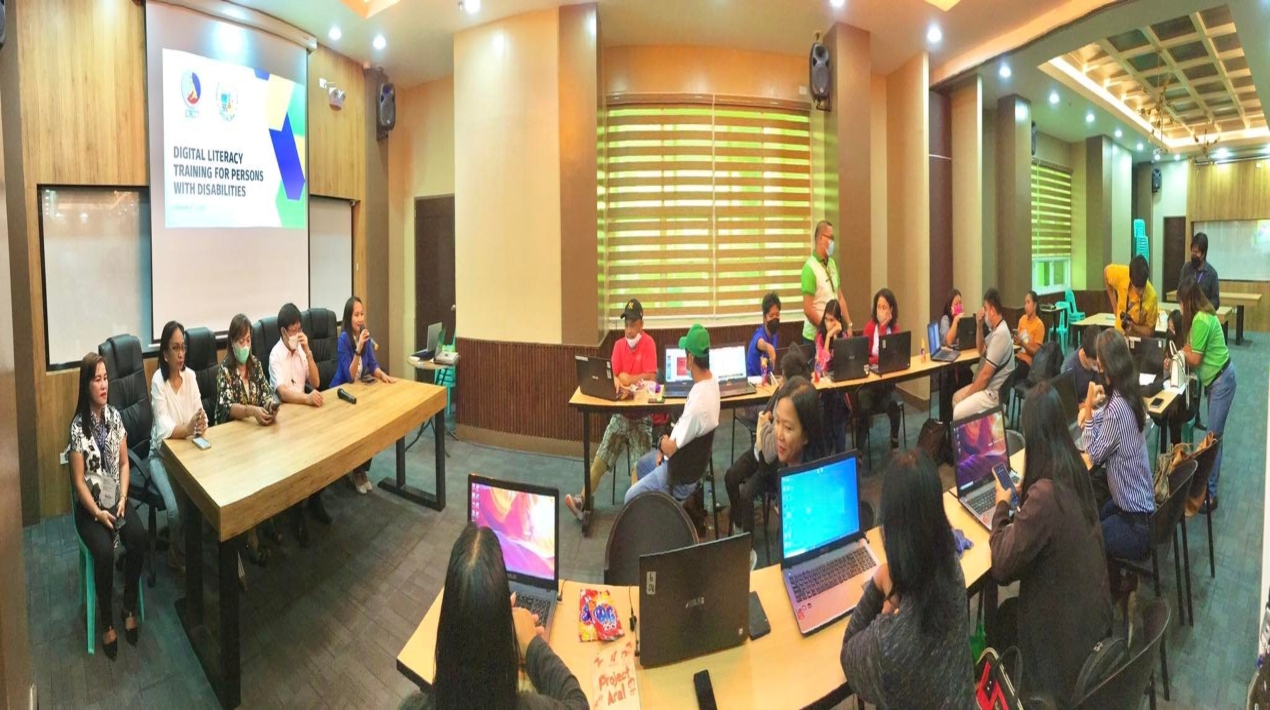
The Department of Information and Communications Technology (DICT) recently taught people with disabilities (PWDs) how to be digitally literate. According to Johanna F. Tulauan, DICT provincial officer, the Digital Literacy Training was part of their duty to implement a Specialised ICT Training Programme aimed at meeting the unique demands of diverse industries across the nation.
The DICT officer added that the training aims to provide participants with basic information on ICT-related subjects that will enhance their knowledge and, in the long run, provide them with opportunities for employment or entrepreneurship; aid the government in bridging the digital divide while bolstering inclusiveness among the special needs sectors of the nation.
It will also bridge digital literacy gaps to determine which target groups across different sectors have the greatest needs and where the greatest benefits could be obtained for individual groups and for society, and it will empower both urban and rural-based marginalised groups across different sectors by enhancing their ICT capabilities and by promoting the greater use of the internet and technologies in their daily activities. The training included both lectures and hands-on exercises on Computer and Internet Essentials, Productivity Tools, and Troubleshooting and Networking Fundamentals.
Similarly, the Department of Education has set up ICT programmes like the Learning Resource Management and Development System, an online library with free teaching and learning materials that can be downloaded, and ICT literacy programmes for primary and secondary education.
The Bureau of Alternative Learning System is part of the Department of Education. Its Community Learning Centres offer free education to young people who are not in school, including those with disabilities. These learning centres offer basic computer classes on how to use technology.
In the meantime, the Department of Social Welfare and Development (DSWD) has announced that the online platform for the registration and licensing of Social Welfare and Development Agencies (SWDAs) and accreditation of social welfare development programmes and services are now available following the re-launch of the improved DSWD Regulatory eServices.
The DSWD Regulatory eServices enable SWDAs to submit requests with the required documentation and to receive real-time updates on their application status. In addition, data confirmations are implemented to reduce the likelihood of human error and ensure that only precise information is kept.
In addition, Secretary Erwin T. Tulfo physically navigated the actual online registration process for an SWDA account to observe how the platform operates.
The Secretary commended the DSWD Standards Bureau and the Information and Communications Technology Management Service for pioneering the development of the online platform as part of the Department’s efforts to institutionalize digitalization in the delivery of social protection programs.
The upgraded DSWD Regulatory eServices will act as the nation’s consolidated database, facilitating the generation of reports, monitoring of status, applicant profiling, and application filing by Social Welfare and Development Agencies (SWDAs). This is one of the things being done to change how basic services are delivered, and it looks at a national health emergency where physical separation is strongly recommended.
The Secretary also praised and acknowledged the essential functions of the SWDAs in the provision of social welfare services to Filipinos. With the improvement of the DSWD Regulatory eServices, the Department strives to assure the accuracy of the data and information on the Registration, Licensing, and Accreditation of SWDAs and to give SWDAs and Non-Governmental Organisations with digital access to the Agency’s regulatory services.
















